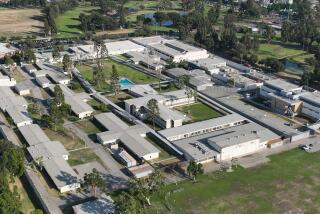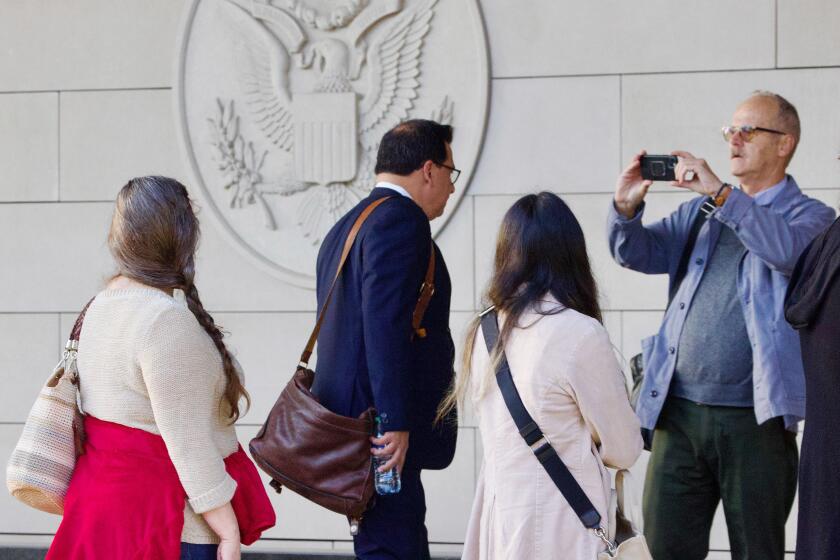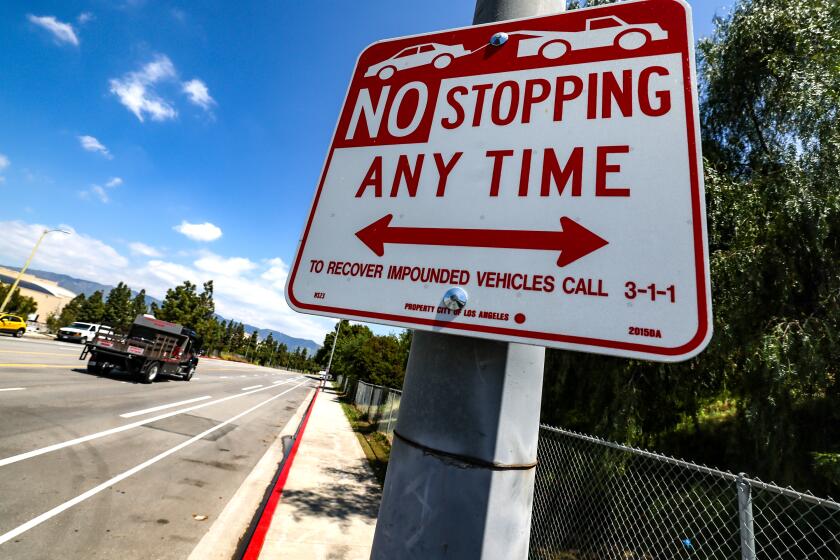Contra Costa County to end solitary confinement for juveniles
In preliminary legal settlements announced Tuesday, Contra Costa County’s probation department has agreed to end the practice of solitary confinement for youths in juvenile hall, while the county’s office of education will guarantee appropriate services for all youths with disabilities.
The coordinated settlements come in the wake of increased national focus on the damaging nature of solitary confinement for young people -- a practice that former Atty. Gen. Eric H. Holder Jr. had pressed to end.
The resolution was announced by Berkeley-based Disability Rights Advocates and Los Angeles-based Public Counsel -- the two nonprofit legal organizations that filed suit in 2013 in U.S. District Court in San Francisco on behalf of Contra Costa County youth.
The U.S. Departments of Justice and Education last year filed statements of interest in the case, saying their authority and expertise should be considered.
The suit alleged that youths with psychiatric and developmental disabilities were routinely locked in narrow cells for up to 23 hours per day and deprived of education, including special education guaranteed to them under federal law.
“In Contra Costa County, the draconian practice of solitary confinement will come to an end and the focus will be, as it should, on education and rehabilitation,” Mary-Lee Smith, managing attorney at Disability Rights Advocates, said in a statement. “Our hope is that other facilities across the nation will follow suit.”
Attorneys for Contra Costa County could not immediately be reached for comment.
As part of the proposed settlement, the county probation department has agreed to no longer use room confinement for punishment, discipline or expedience. It may segregate a youth in his or her room for no more than four hours and only if the youth’s behavior threatens immediate harm to themselves or others.
After four hours, the department must remove the youth from confinement, develop specialized individualized programming for the youth in coordination with the office of education, or assess whether the youth should be transported to a mental health facility.
Outside experts will assist with implementation and monitor compliance for two years.
“The promise of this settlement for youth in the juvenile hall is real rehabilitation, support instead of isolation and segregation, and high-quality special education services and options,” said Public Counsel Education Rights Director Laura Faer.
Among the named plaintiffs in the class-action suit was W.B., who was placed in solitary confinement for more than 100 days, suffered a psychotic break and was found smearing feces on the wall of his cell.
“The damage that Contra Costa County did to him by placing him in solitary confinement for so many days is done,” said CiCi, W.B.’s mother. “But I kept fighting for these settlements because I don’t want any other mother to go through what I have gone through.”
The parties will file for preliminary approval of the settlement agreements within the month. The district court will then order notice to class members and hold a final fairness hearing on the settlement agreement to determine whether it will approve the settlements.
Twitter: @leeromney
More to Read
Start your day right
Sign up for Essential California for news, features and recommendations from the L.A. Times and beyond in your inbox six days a week.
You may occasionally receive promotional content from the Los Angeles Times.







